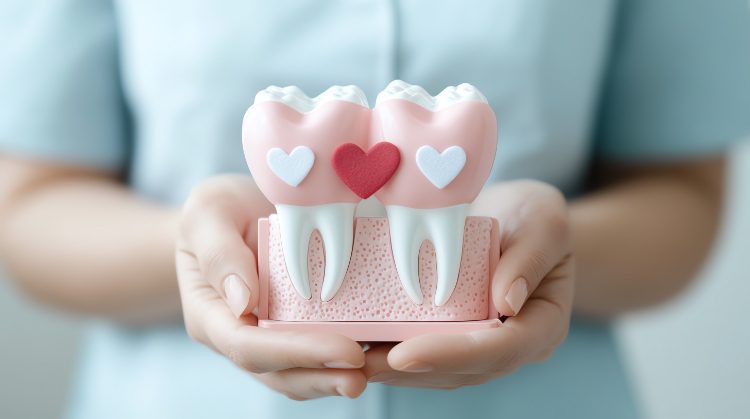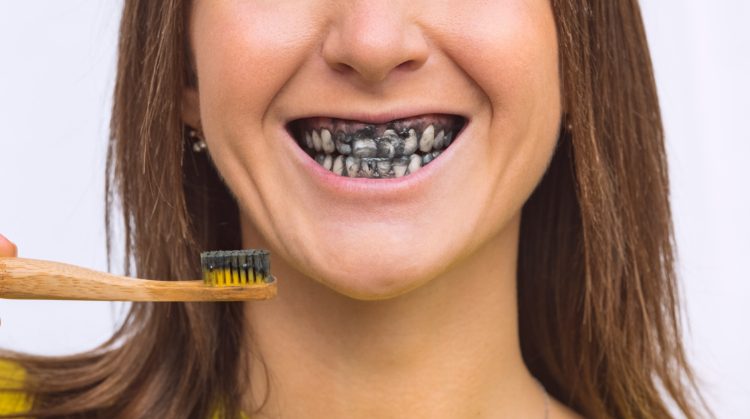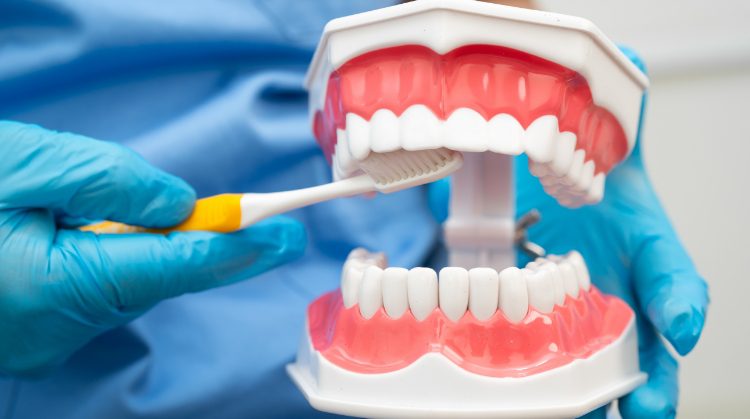
A new study published in the Journal of the American Geriatrics Societyhas discovered a link between oral health problems and the risk of developing frailty in older age. The study was conducted with 1,622 men ages 71 to 92. There is no standard or universally accepted definition of frailty, so for the study, frailty was defined as having three or more of the following symptoms: weight loss, grip strength, exhaustion, slow walking speed and low physical activity. Participants of the study most at risk for frailty were those who were edentulous, which means they were missing their natural teeth, and those with dry mouth symptoms.
According to the American College of Prosthodontists, there are about 23 million completely edentulous geriatric patients in the United States and 36 million total Americans with no natural teeth remaining. The problem is so severe among the geriatric population that the ratio is approximately two to one edentulous, said Dr. Amy Norman, DDS, a leading area dentist in Everett, Washington.
“The elderly are at a greater risk for missing teeth due to years of plaque accumulation, gum recession and dry mouth,” she said. “Dry mouth is extremely common due to the large number of medications that cause dry mouth as a side effect.”
Dry mouth is often just thought of as annoying, but it can have serious oral health implications. Saliva helps rinse out debris and food particles from the teeth that can lead to plaque buildup. It also helps the mouth return to a healthy pH balance after the acid attacks that occur each time we eat or drink things with sugars and carbohydrates.
“Without this important part of the mouth’s defense, tooth decay becomes much more likely, which in turn can lead to gum disease and tooth loss,” Norman said.
Improving oral health could help prevent frailty, according to the results of the study. In addition to a daily oral hygiene routine and regular dental checkups and cleanings by a professional, Dr. Norman recommends patients experiencing dry mouth symptoms to discuss alternative medications with their medical providers. Many of the medications that cause dry mouth have alternative options that don’t cause this damaging side effect. If switching medications is not possible, talk to your dentist about treating the symptoms of dry mouth to help keep teeth healthy and strong.
According to the Department of Geriatric Medicine at Johns Hopkins University, frail older adults are among the most challenging patients in the medical community because they are less able to tolerate the stresses of illness and hospitalization. They are also more vulnerable to poor health outcomes and may be more likely to become disabled and eventually institutionalized for their physical and mental well-being. Because of this, determining factors that make older adults more at risk for developing frailty is increasingly important in an effort to avoid the serious and often disabling condition.



